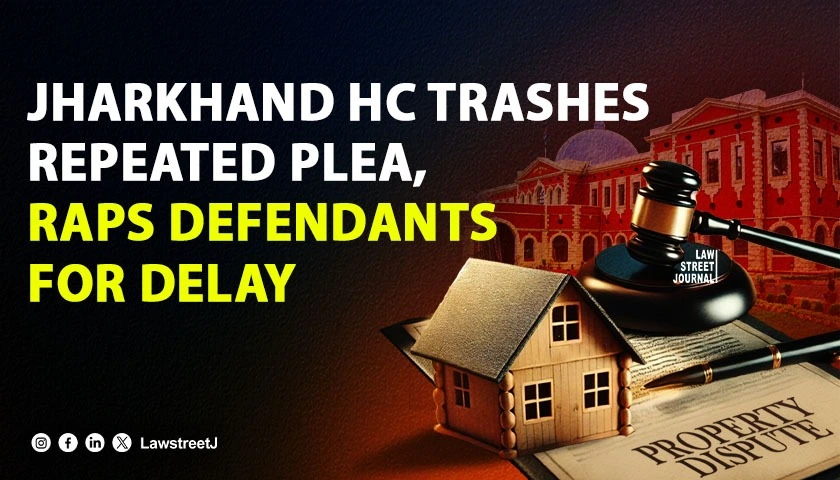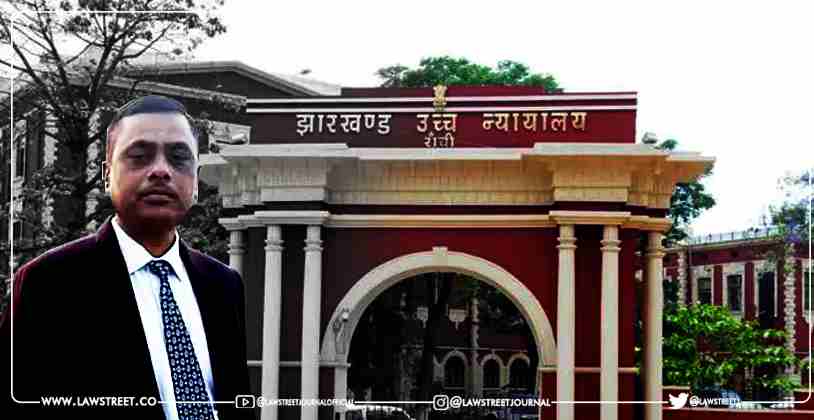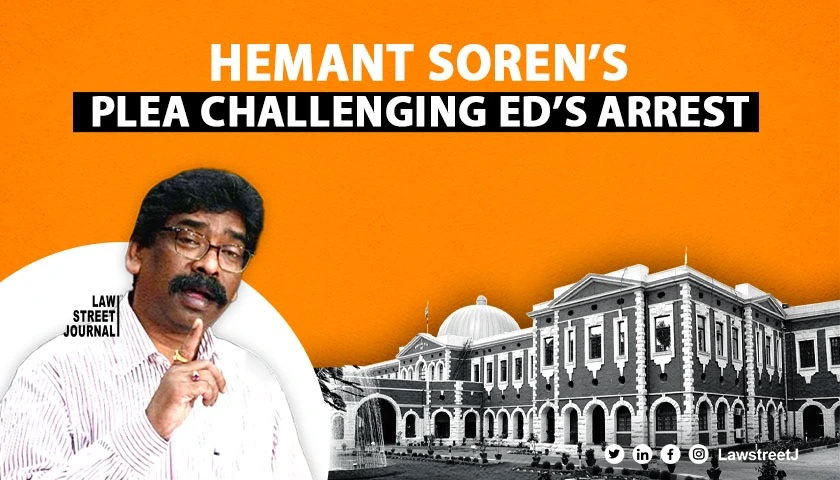Ranchi: The Jharkhand High Court has dismissed a petition challenging earlier orders in a civil title suit, holding that repeated petitions to recall finalized orders are barred by the principle of res judicata. The court also observed that the petitioners had themselves invited the situation through their negligence.
Justice Sanjay Kumar Dwivedi delivered the judgment on July 1, 2025, in C.M.P. No. 554 of 2023, filed by Ganesh Prasad Gupta and Meera Gupta against seven sons and three daughters of Late Sheo Prasad Gupta in a property dispute involving 0.48 acres of land in Shibu Colony, Ramgarh.
The dispute originated from Title Suit No. 99/2014, filed by the plaintiff (father of the opposite parties) seeking right, title, interest, and possession over the disputed property. The petitioners/defendants had appeared before the trial court on March 21, 2015, but failed to file their written statement within the stipulated time.
Consequently, the trial court, by an order dated August 31, 2015, debarred the petitioners from filing their written statement under Order VIII Rule 1 of the Code of Civil Procedure (CPC). The petitioners subsequently filed multiple petitions seeking to recall this order, on April 8, 2016, and June 10, 2016, but these were rejected by the trial court on September 18, 2017.
Challenging the September 18, 2017 order, the petitioners approached the High Court through W.P.(C) No. 6994 of 2017, but the writ petition was dismissed as withdrawn on January 28, 2019. The High Court noted that “liberty was not provided to the petitioners and it was a simple withdrawal on the prayer of the petitioners.”
Despite this, the petitioners filed another petition on November 30, 2022, seeking to recall the three earlier orders dated August 31, 2015, April 8, 2016, and September 18, 2017. The trial court rejected this on March 2, 2023, holding it barred by res judicata, as no liberty had been granted earlier to file fresh petitions.
Senior Advocate Rajeeva Sharma, appearing for the petitioners, argued that Order VIII Rule 1 of the CPC is directory and not mandatory, citing various Supreme Court judgments. He submitted that the only reason for the non-filing of the written statement was the ill-health of their conducting lawyer, and sought condonation of delay.
Opposing the petition, counsel for the opposite parties, Advocate Samir Kumar Lall, argued that the petitioners had adopted a “casual approach” by filing one petition after another, and that the trial court had rightly applied res judicata.
The High Court acknowledged that courts should be liberal in allowing written statements if cogent reasons are shown, but emphasized that such extensions cannot be granted as a matter of course. Relying on Atcom Technologies Ltd. v. Y.A. Chunawala and Co., the court reiterated that time for filing a written statement can be extended “only in exceptionally hard cases.”
The court noted that while the petitioners claimed their lawyer’s ill-health as the cause for delay, “no supporting documents have been brought before the learned Court.” It found that the petitioners had failed to establish compelling reasons beyond their control.
Significantly, applying the principle of res judicata, the court cited Mahboob Sahab v. Syed Ismail, which held that even in a pending suit, if a petition of a similar nature has already been decided earlier, res judicata would apply. It also referenced Kailash v. Nanhku, where the Supreme Court held that while Order VIII Rule 1 is directory, “the delay could not be condoned as a matter of course, but on disclosure of compelling reasons beyond the control of the parties.”
Criticizing the petitioners’ conduct, the court stated: “The petitioners herein are responsible for inviting such situation and unnecessarily, the Courts are being blamed for delay in disposal of the cases.” The court also noted that by the time the impugned petition was filed, issues had already been framed in the original suit and one plaintiff’s witness had been examined, indicating significant progress in the trial.
In dismissing the petition, the court emphasized that “orders passed by the Court can be set aside only on the limited ground of illegality, irrationality, and procedural impropriety,” and found no such grounds present.
Appearances:
For the Petitioners – Senior Advocate Rajeeva Sharma, with Advocates Om Prakash and Maksuda Khatun.
For the Opposite Parties – Advocates Samir Kumar Lall and Sanjay Kumar.
Case Title: Ganesh Prasad Gupta & Anr. v. Manoj Kumar Gupta & Ors.




![Supreme Court Collegium approves new Chief Justices for five key High Courts in India [Read Recommendations]](/secure/uploads/2023/12/lj_8000_380d1135-6f3a-4988-a00a-4d5cd5901815.jpg)
!['Arbitrary, impermissible,' SC quashes HC's resolution raising aggregate cut off marks on district judges appointment [Read Judgment]](/secure/uploads/2024/02/lj_3605_Rule-for-Judge-Selection.webp)







